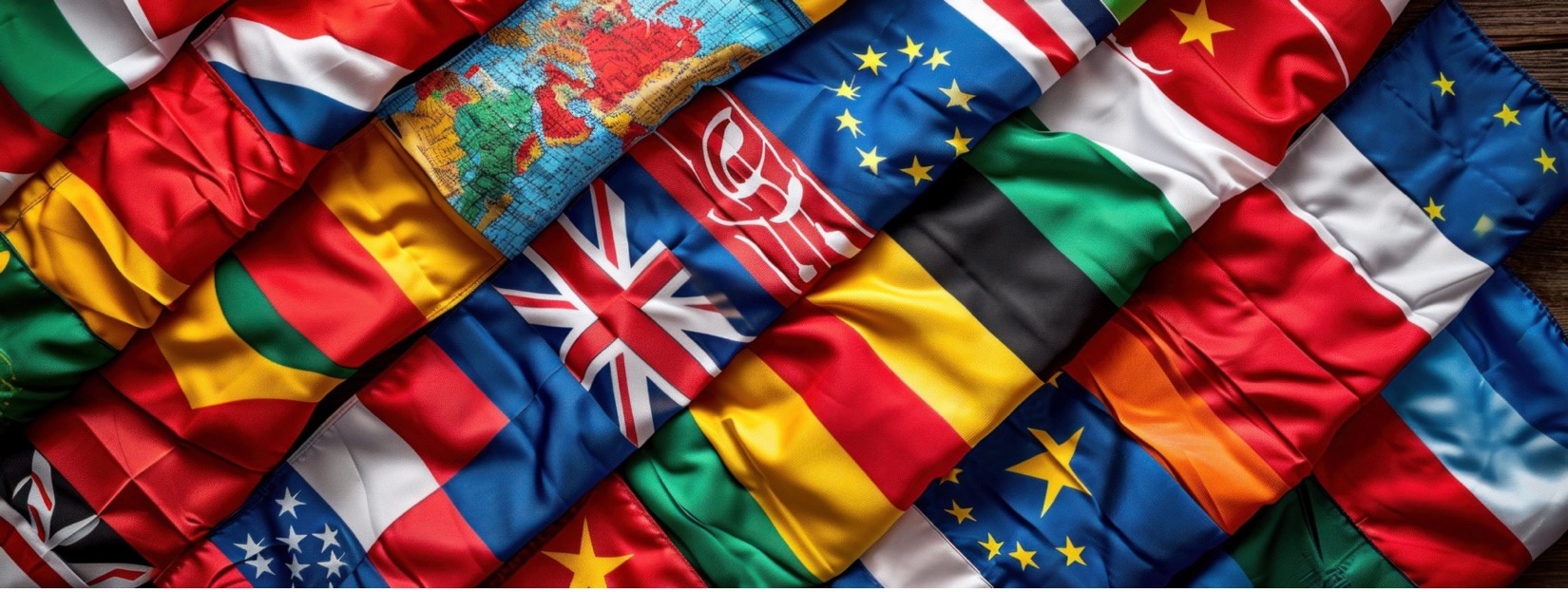
The strength of a community lies in the fullness of its diversity. The greater the variation of cultures and experiences, the greater the possibility of achieved outcomes. Prince George’s Community College has become an educational safe haven for many students seeking the freedom to learn in pursuit of happiness and prosperity.
In just three years, the English for Refugees and Asylees (ERA) program at PGCC experienced an enrollment boost of about 10 times the 130 students previously enrolled in 2021.
“Our program is very important because we try to meet our students where they are, and we serve as a bridge for them so they can go where they want to go and achieve their goals.” Chaw Kalayar, program coordinator of the English for Refugees and Asylees (ERA) program, said. “We're empowering them to recognize that they are part of a larger college community, and despite their language ability, they should be able to have the opportunity to dream big.”
Since 2015, the Maryland Office for Refugees and Asylees has partnered with PGCC to offer English as a Second Language courses. The program is a lifeline for individuals from all over the world who are seeking a secure place to live and build a family.
While the program has participants from many different countries, participants from Afghanistan have the most significant representation in the program. Recent political activity in Afghanistan with the Taliban’s negative influence has caused many people to flee that country. In FY24, individuals from Afghanistan represented 41 percent of the ERA program at PGCC.
The second largest population of people in the ERA program is from Haiti, making up 32 percent of participants in the program. The program has four levels that teach everything from literacy to communicative English for workforce readiness.
“We understand the vulnerable populations that we are serving because this population comes most likely with traumatic experiences due to forced migration,” Kalayar said. “Most of them cannot even visit or go back to their home countries in the foreseeable future. It's very important to give them customized and accessible services to remove the language barrier as soon as possible, to get them into the community, and to provide them with sustainability.”
Recognizing International Students' Day
On November 17, International Students’ Day is recognized all over the world and PGCC stands in full support of students from this population.
“In honor of International Students' Day, I want to acknowledge the different cultures international students bring and their remarkable courage and resilience across the board,” Kalayar said. “Being able to leave their home countries and study in other countries with different languages, different cultural backgrounds, different systems itself is a sign of bravery.”
Shakereh Mohammad Esmail
Shakereh Mohammad Esmail, 29, has been in the U.S. since 2021 after leaving Afghanistan in 2016. She also spent time living in Turkey before coming to the United States. She currently lives with her three daughters and husband.
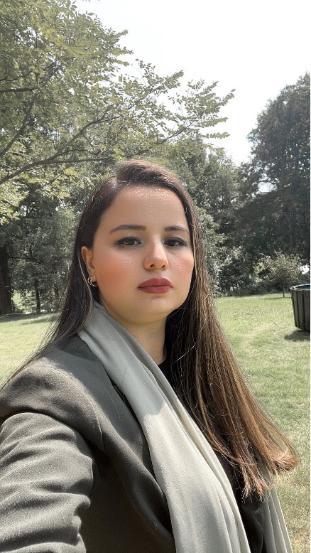
“The main reason I left was because there was a security threat to our lives back in Afghanistan, and also women were banned from their basic human rights. I needed to get my own rights and also for my children so that we could benefit from this situation,” Esmail said. “Here, we have all the basic rights, and we can have equal opportunities and equal rights in the U.S.”
Esmail would like to find employment working in the childcare field and looks forward to purchasing a home in the U.S. She is hopeful that her daughters have the opportunity to become doctors or engineers in America and are free from the education restrictions the Taliban has placed on women and girls in Afghanistan. She said in Afghanistan, girls are not allowed to be educated past the sixth grade.
“The most important thing is that America is a land of opportunities,” Esmail said. “I think that the way you teach, the way your children have a bright future makes a big difference. I have lived in Turkey; I have sweet memories, and I have bad memories. Life—sometimes it's good, sometimes it's bad, but the United States is the best country for life, especially for women.”
Catina Charles
Catina Charles, 39, emigrated to the U.S. in June 2023 from Haiti. She went to college to study accounting, but when the political climate, gang violence, and kidnappings became prevalent, she decided to seek a safer environment for her life. Although she misses her family in Haiti, she enjoys being in a country with laws and security.
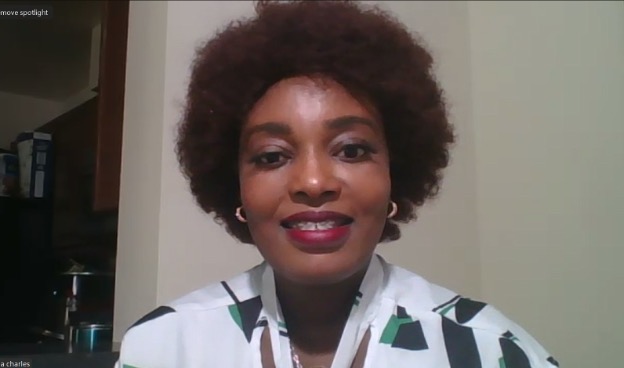
She entered PGCC’s ERA program to advance her English skills and looks forward to advancing a career in the health care field to become a nurse. She has her hope of giving back to others in anyway she can. She is now a level three student learning four foundation English skills that will enable her to integrate into the English-speaking community.
“My heart is free,” Charles said. “I feel free here, and I always wanted to not live in fear.”
Sayed Mohammad Haqqany
Sayed Mohammad Haqqany, 36, fled Afghanistan after the Taliban took over the democratic government. He worked at the Kabul airport, where the U.S. Army was also stationed. He feared persecution from the Taliban due to his proximity to the U.S. Army.
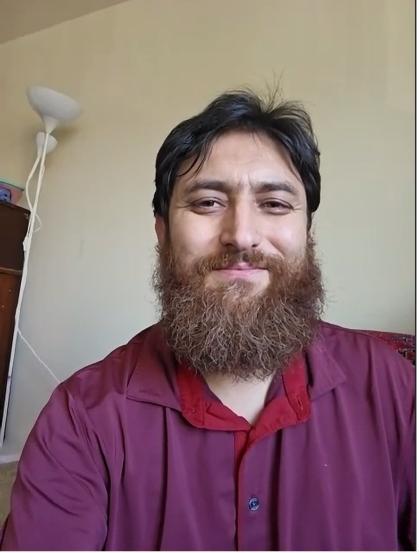
Haqqany’s native language is Dari, and he says overcoming a language barrier makes it challenging to do small tasks like scheduling doctor appointments. In the ERA program at PGCC, he is a level three student.
“In every country, if a person doesn't understand a language, it is like a blind person who can't communicate to the fullest extent,” Haqqany said. “It is a difficult thing that he can't express his problems. That's why language is very important. “We have learned a little bit of the language, but now even with the broken words we have learned, we can solve our problems and understand what we need and what we want.”
Haqqany would like to start a car sales or restaurant business as an entrepreneur. He is a father of five children, all living in the U.S. with him and his wife. He looks forward to providing them with more opportunities while living in the U.S.
“We want our children to be educated in a proper way,” Haqqany said. “Secondly, I appreciate the security and peace that exists here because there was no peace in our country. We are hopeful that if we are in this country, we will have a bright future and also education so we can develop our future life in a better way.”
Frantzy Jean Augustin
Frantzy Jean Augustin, 47, came to the U.S. from Haiti in May 2023. After making a living as a police officer, he decided to leave Haiti because traveling to work in his police uniform became increasingly dangerous due to the political climate and gang violence.
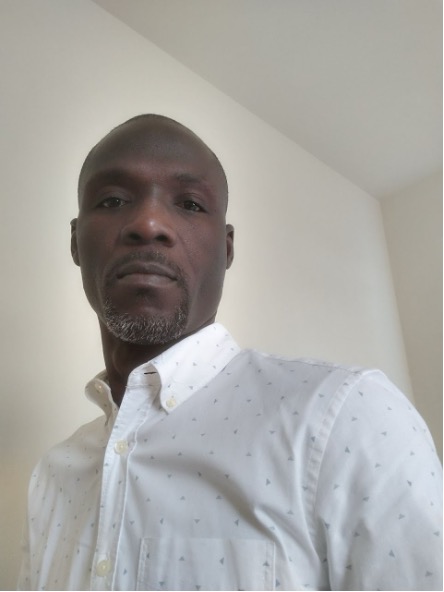
“I’ve always heard and dreamed about the greatness of the United States,” Augustin said. “When I arrived, I always aspired to see the greatness of the United States for myself.”
Augustin has a wife and a three-year-old son still living in Haiti. He said he misses his family very much but is able to breathe and feel safe in the U.S. He and his wife feared for his life every day in Haiti. Since living in America, he has been impressed with the infrastructure and transportation accessibility that was not present in Haiti. He desires to find work in the security field in the U.S. and develop a trade as a plumber. In the ERA program, he is currently a level three student and enjoys discovering new vocabulary through reading.
“It's been a real pleasure being in the PGCC program,” Augustin said. “I really celebrate the staff because I realize that even though I’m working, I didn’t really have the amount of money that would probably be necessary to attend an English program like this one. I'm very thankful for the professors and the instructors because they have a lot of patience with the students.”
Aye Aye Shwe
Aye Aye Shwe, 57, is originally from Myanmar (Burma) in southeast Asia. After the military coup in 2021, she and her family protested against the government and managed to escape to the U.S.
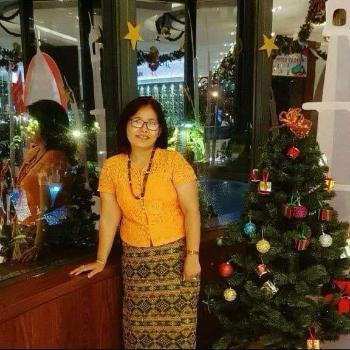
“I miss my family, friends, my plants, and my dog. Unfortunately, my plants and my beloved dog are already dead since we had to flee so suddenly,” Shwe said.
Shwe found it challenging to adjust to American culture due to differences in food, language, and weather.
“The biggest thing for me was the language barrier but I was fortunate to be able to take an English class in PGCC shortly after arriving,” she said.
Regarding her experience at PGCC, Shwe expressed, “I enjoyed meeting friends from various countries in the ERA English program who could share similar experiences. A lovely memory is when I showcased my art during the ERA World Refugee Day event in 2023. Sharing my art's story and our struggles made me feel that I fulfilled my responsibility to raise my voice for my country. I’m also thankful that the ERA program helped me connect to paid chef training through the Emma’s Torch program, which provided me with a recognized certificate for a living despite my lack of formal education in the U.S. I was even featured in the Emma’s Torch newsletter.”
Like other refugees and immigrants, Shwe has a big dream too: “Now, I run my own business selling traditional food I make. My goal is to buy a house and grow many plants like I used to do in my home country,” Shwe said.
She moved to Montgomery County a few months ago but still has an attachment to PGCC.
“With my age, I prefer in-person classes, and I am planning to come back to P.G. [Prince George's] County and take an in-person English class again at PGCC.”
Note: This article was completed with assistance from artificial intelligence software and live, in-person translation services.
